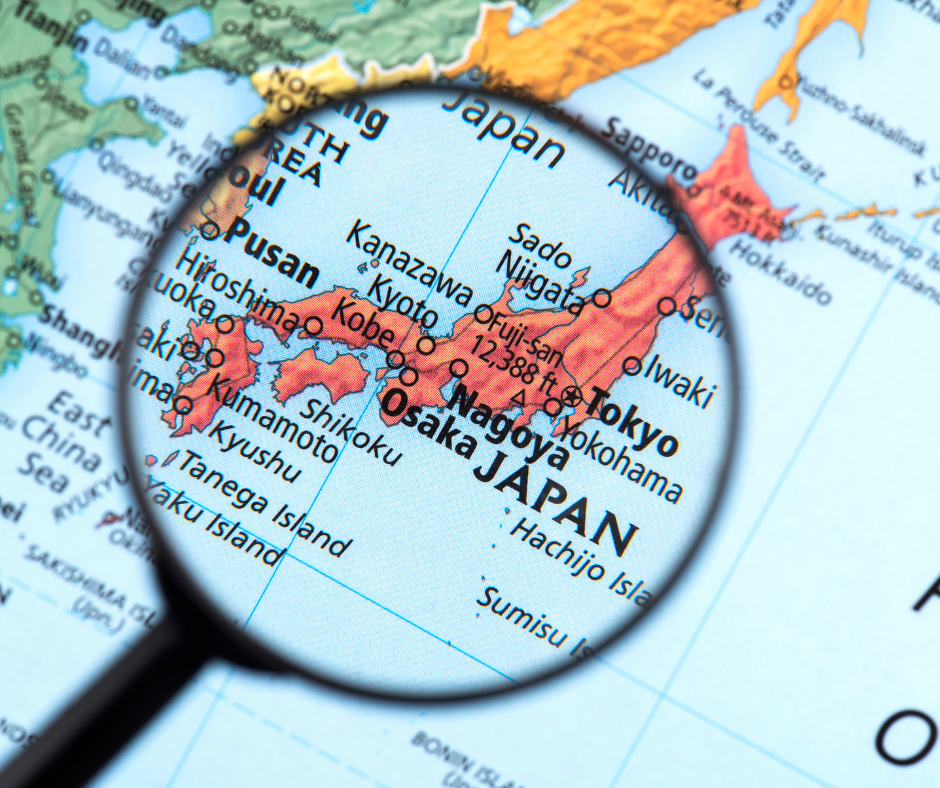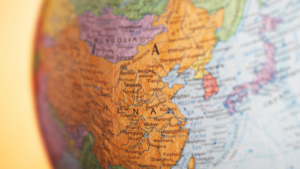
Russia’s invasion of Ukraine has opened a new chapter in the history of the post-Cold War world. It has shaken the political and economic foundations of Europe and, on the other hand, has brought the confrontation between the global ‘East’ and ‘West’ back to the fore in international politics. In this conflict, Japan is on the side of Europe and the United States, concerned not only with Russia’s revisionism, but above all with the expansionism of China – a growing Asian superpower. These two factors have changed Japan’s perception of its own security and Russia became a threat.
The war in Ukraine is for Japan – just like for Germany – a kind of “Zeitenwende” that is, a reversal of the main assumptions of foreign policy. For over a decade, Japan has tried to build its relations with Russia both in the diplomatic and economic fields. Japanese companies have carried out 200 projects in the partnership with Russian firms. Investments in Russian energy industry (“Sakhalin” 1 and 2), greater bilateral trade and the construction of Japanese car factories in Russia did not only have an economic aspect for late Shinzo Abe – the former Prime Minister. It was also an act of goodwill to persuade the Kremlin to conclude a peace treaty and to make concessions on the so-called Northern Territories, i.e. the Kuril Islands which Russia has occupied since the end of World War II. However, the efforts of the Japanese government in which the current prime minister, Fumio Kishida, was also the foreign minister for some time, have not brought substantial results. Russia’s attack on Ukraine on February 24, 2022 brought an end to the “soft” policy towards the Kremlin that was particularly visible after the annexation of Crimea in 2014, when Tokyo, only under pressure from Washington, decided to impose symbolic sanctions against the aggressor.
NEW POLICY TOWARDS THE KREMLIN
The “Blue Book” published in 2022 by the Japanese Foreign Ministry on the international situation states that “Aggression against Ukraine not only fundamentally destroys the security structure in Europe, but also threatens the world order after the Cold War and can be called an important turning point in history”. Japanese authorities also state that Tokyo will act jointly with the international community, including the G7, demanding that Russia withdraw its troops and cease all activities in violation of international law. Japan has also made it clear that Moscow will pay a high price for its aggression against Ukraine through the sanctions Tokyo is implementing against Russia in cooperation with its Western partners. Hence, immediately after the outbreak of the war, the Japanese government took decisive diplomatic, financial and trade steps.
As part of the package of sanctions, Tokyo has withdrawn the “most favored nation” status in relation to Russia under the WTO (World Trade Organization) system. At the same time, Japan introduced a ban on the import of machinery, wood, vodka and gold from that country. In the energy sector, Japan has decided to reduce its dependence on Russia which means a gradual phasing out and a ban on imports of Russian coal and oil. In terms of exports, the Japanese government has imposed sanctions on the export of goods to Russian military-related entities as well as the export of dual-use goods to Russia, such as semiconductors, high-tech products, oil refining equipment, goods that may contribute to increasing Russian industrial capabilities and the products that could be used for the production of chemical and biological weapons.
In financial terms, the Japanese government decided to reduce transactions with the Russian central bank, freeze the assets of people associated with the Russian government, including President Putin himself and the so-called oligarchs. The assets of eleven Russian banks (including Sberbank, Alfa-Bank, VEB.RF, Promsvyazbank, Bank Rossiji, VTB Bank and Sovcombank) were also frozen. Tokyo has also made efforts – along with other G7 countries – to cut Russia off from the international financial system, including the exclusion of selected Russian banks from the SWIFT messaging system.
Japanese sanctions also affected President Lukashenka’s regime in Belarus. The assets of four major Belarusian banks (Belagroprombank, Bank Dabrabyt, Development Bank of the Republic of Belarus and Belinvestbank) were frozen and sanctions were imposed, including freezing the assets of designated persons and entities associated with Belarus, including President Lukashenka. In addition, as in the case of Russia, there has been a ban on the export of goods to Belarusian military-related entities, as well as civil and military dual-use items such as semiconductors.
It is worth noting that the sanctions against Russia have been met with a strong support by the Japanese public. In a public opinion survey by Nikkei Inc. and TV Tokyo shortly after the start of the Russian invasion of Ukraine, 61% of respondents were in favor of imposing severe sanctions on Russia. Moscow’s reaction came soon after. On March 7, Japan, along with the member states of the European Union, as well as, among others, South Korea and Australia, was entered on the Kremlin’s list of “unfriendly countries“.
Diplomatic relations between Tokyo and Moscow deteriorated significantly during the following months of the Russo-Ukrainian war. In March 2022, Moscow broke off the peace treaty talks with Tokyo. And on September 20, 2022, the Prime Minister of Japan, Fumio Kishida, in his speech at the UN General Assembly stated: “We are standing at a historic turning point. Russian aggression against Ukraine is an act that suppresses the vision and principles of the United Nations Charter. It is crucial that all countries are subject to the rule of law and not the rule of force which we absolutely cannot allow”. A few days later, on September 26, 2022, the Russian FSB security service detained a Japanese diplomat in Vladivostok on suspicion of espionage. The Consul Motoki Tatsunori was designated by the Russian government as “persona non grata” and had to leave Russia. In response, the Japanese authorities took similar diplomatic measures against the Russian consul in Sapporo.
SUPPORT FOR UKRAINE
The Japanese government has not restricted its actions to sanctions against Russia and Belarus but provided significant aid to war-torn Ukraine. It included financial assistance of USD 1.1 billion. Japan has also strengthened Ukraine’s defense potential by sending Kiev, among others, drones, bulletproof vests, helmets, winter combat uniforms, tents, food rations, binoculars, medical supplies and civilian vehicles.
Prime Minister Fumio Kishida also offered Japan’s assistance in the future reconstruction of Ukraine. The Ukrainians themselves consider as particularly valuable the unique experience of Japan in the reconstruction of cities and infrastructure after the great earthquake and tsunami of 2011. Of particular importance is the technology used by the Japanese for sorting and recycling rubble which could also be used in Ukraine.
The President of Ukraine – Volodymyr Zelensky was invited to speak (via video-link) in the Japanese parliament, and his speech was received warmly by the Japanese media and society. The concerns of Ukrainians related to the Russian attacks on the areas where nuclear power plants are located resonate well with the sentiments of the Japanese affected by the 2011 disaster at the Fukushima nuclear power plant. Japan – traditionally reluctant to receive migrants – has accepted over 2,000 refugees from Ukraine and has assisted them in re-settling and finding jobs. Public opinion polls show that Japanese society unequivocally supports such actions. Private Japanese companies, including such giants as Rakuten, have provided aid to the Ukrainians. The upcoming winter may mean for Ukraine both a Russian counteroffensive and huge energy problems, including heating the population cut off from electricity and gas. A certain relief may be the “winter assistance” announced by Prime Minister Kishida, i.e. the supply by Japan to Ukraine of heating systems for displaced persons and other equipment to help them survive the cold winter.
REPERCUSIONS OF THE UKRAINIAN WAR FOR THE SECURITY OF JAPAN
In the aforementioned “Blue Book”, the Japanese Foreign Ministry notes that the impact of Russia’s war with Ukraine extends far beyond Europe: “Russia’s aggression against Ukraine constitutes a serious violation of international law prohibiting the use of force, and is an outrageous act that shocks the very foundations of the international order, not only in Europe but also in Asia.”
The most dangerous consequences of the Ukrainian war for the Indo-Pacific and Japan itself are related to the impact this armed conflict may have on the regional political and military strategy of Moscow’s ally, Beijing. For the Japanese the biggest concern is China’s continuous increase in its defense budget, and above all, of the dynamic strengthening and modernization of the Chinese armed forces. Tokyo is particularly concerned about China’s pursuit of a competitive advantage in new security domains such as space and cyberspace.
In addition, Japan is watching with concern the Chinese attempts to unilaterally change the status quo at sea and in the air in waters such as the East China and South China Seas. Since Russia’s invasion of Ukraine, there has also been an increase in Chinese political and military pressure on Taiwan, which Beijing sees as its “renegade province” and insists on the “unification” of the island with the People’s Republic of China.
These actions threaten the idea of an “Free and Open Indo-Pacific” (FOIP), advocated by late Prime Minister Shinzo Abe during his visit to Kenya in 2016. The vision includes ensuring peace and prosperity in the Indo-Pacific region by establishing a free and open order based on shared values and principles, such as the rule of law. The Japanese recognize the United States, Australia, India, ASEAN and the European Union as allies in implementing that idea. One of the instruments of FOIP’s implementation is QUAD – a forum for dialogue and cooperation in the field of regional security, initiated in 2007 also by Prime Minister Shinzo Abe. Tokyo is working in this format with Australia, India and the US who are also concerned about China’s assertiveness in the Indo-Pacific and the increasing tensions in the Taiwan Strait.
For Japan, the status quo with respect to Taiwan and the de facto independence of the island from Beijing are essential to its own security. These factors limit the strategic possibilities of Chinese troops in the East China Sea and thus are key to the defense of the Japanese islands in the event of a conflict involving China. However, “reunification” of Taiwan with the PRC is the most important goal of the third term of the chairman of the Chinese Communist Party, Xi Jinping, and has been written into the Party Constitution. All the more disturbing were the largest so far Chinese military exercises in the Taiwan Strait following the visit to Taipei of the Speaker of the US House of Representatives Nancy Pelosi in early August 2022. The Japanese Ministry of Defense reported that five ballistic missiles launched by China’s armed forces landed in Japan’s Exclusive Economic Zone (EEZ). In the event of a possible Chinese invasion of Taiwan, there is a danger that Japan could be drawn into the war.
Tokyo administers the archipelago of Senkaku islets (in Chinese nomenclature: Diaoyu) located in the East China Sea, to which claims are made not only by Beijing but also by Taipei. Thus, China could try to invade both Taiwan and the archipelago Taipei considers its own. The Japanese authorities report regular violations of their territorial waters by the Chinese in the region. On the other hand, the United States has repeatedly emphasized that in the event of an attack on Senkaku, it will defend the islands along with the Japanese. This U.S. commitment was reaffirmed by President Joe Biden to Fumio Kishida after he took office as Prime Minister of Japan in October 2021.
author: Bruno Surdel, PhD, analyst, Centre for International Relations
[evc_interactive_banner type=”classic” custom_link=”url:https%3A%2F%2Fmastersandrobots.tech%2F|||”]




